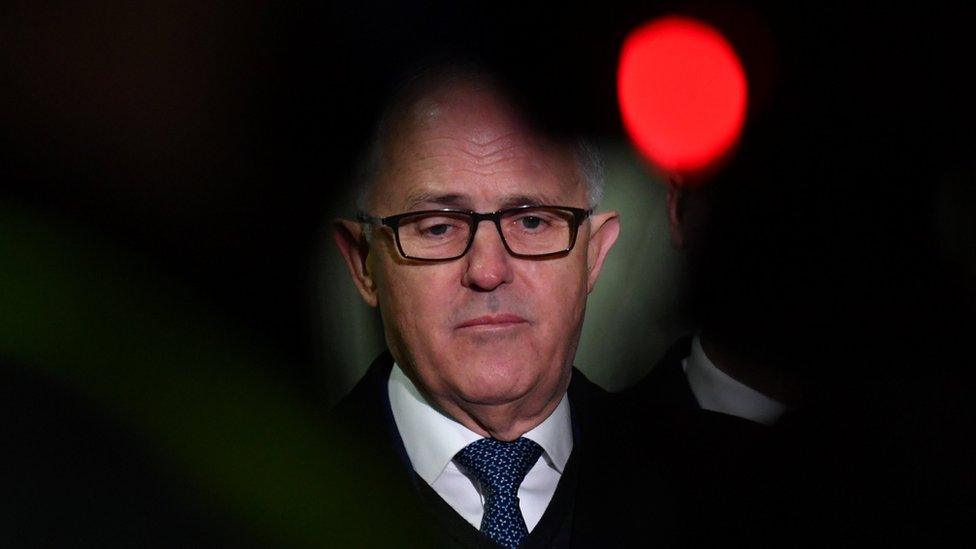Australia media raids: Police do not rule out prosecuting journalists
- Published
Police officers raided Australia's public broadcaster earlier this year
Australian authorities say they have not decided whether they will prosecute journalists at the centre of controversial police raids.
Broadcasters and rights groups have condemned searches by police at the Australian Broadcasting Corp (ABC) and a News Corp reporter's home this week.
They have criticised the seizures of documents as attacks on press freedom.
News reports may have breached national security laws, the Australian Federal Police reiterated on Thursday.
What are the stories in question?
Police searched the ABC's Sydney headquarters on Wednesday over a 2017 investigative series known as The Afghan Files.
According to the broadcaster, the series "revealed allegations of unlawful killings and misconduct by Australian special forces in Afghanistan".
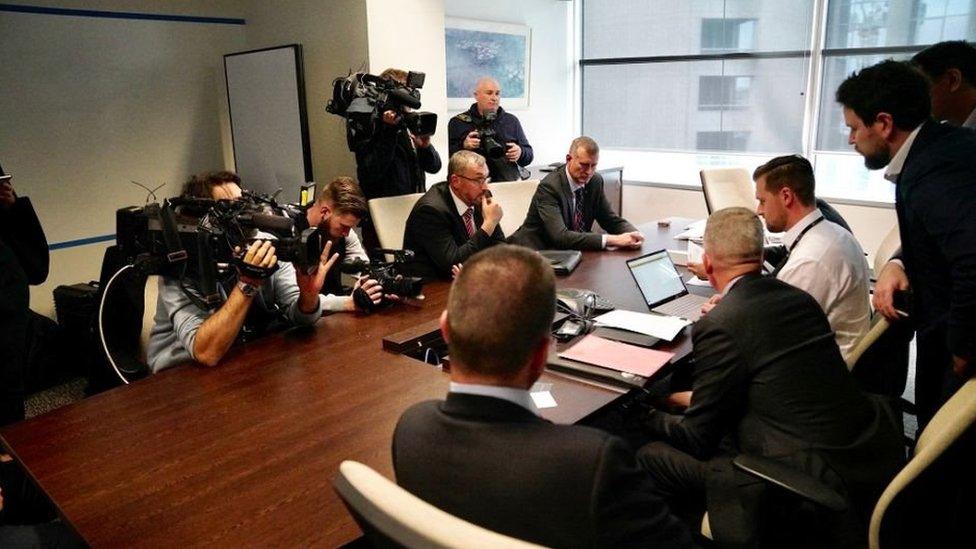
The warrant allowed police to seize documents from the ABC
Tuesday's search at the home of newspaper journalist Annika Smethurst related to her 2018 report about a government plan to spy on Australian citizens.
What did police say on Thursday?
In a press briefing, acting Commissioner Neil Gaughan defended the searches. He said they had related to stories where "top-secret and secret" government information had been published.
"No sector of the community should be immune to this type of activity or evidence collection more broadly," he said.
Asked whether police intended to prosecute media representatives, he said: "We have not made a decision."
However, the commissioner added that authorities would consider the "public interest" of the news reports before proceeding with any case.

'Fighting a war on your own'
Phil Mercer, BBC News, Sydney
David William McBride, the former Australian defence force lawyer charged with leaking classified papers at the centre of the raids at the ABC, has made breathtaking claims against the military and the government.
"It is everything like in the movies," Mr McBride told the BBC. "You are under surveillance a lot and it does get to you."
He is referring to his fight to air the truth about allegations that Australian special forces were involved in killing unarmed men and children while serving in Afghanistan.
"It is one thing fighting for an army in a war because you have a support group, but as a whistleblower you have none of that," he said.
"You're fighting a war on your own and your own sanity is often questioned by yourself and by others. It is a really miserable fight.
"I could see that the [Australian] government had become the worst threat to national security that we faced. They were no longer interested in actually defending the country. They were simply interested in defending themselves."
Read more: ABC police raids highlight risks of whistleblowing

What's been the backlash?
Rights groups and other news organisations, including the BBC, have made protests over the police raids.
The leading journalists' union in the country said the two raids represented a "disturbing pattern of assaults on Australian press freedom". Other unions and civil liberties groups also condemned the actions.
The search of Ms Smethurst's home provoked anger from her employer News Corp Australia. The multinational media corporation, owned by press mogul Rupert Murdoch, called the raid "outrageous and heavy-handed" and "a dangerous act of intimidation".
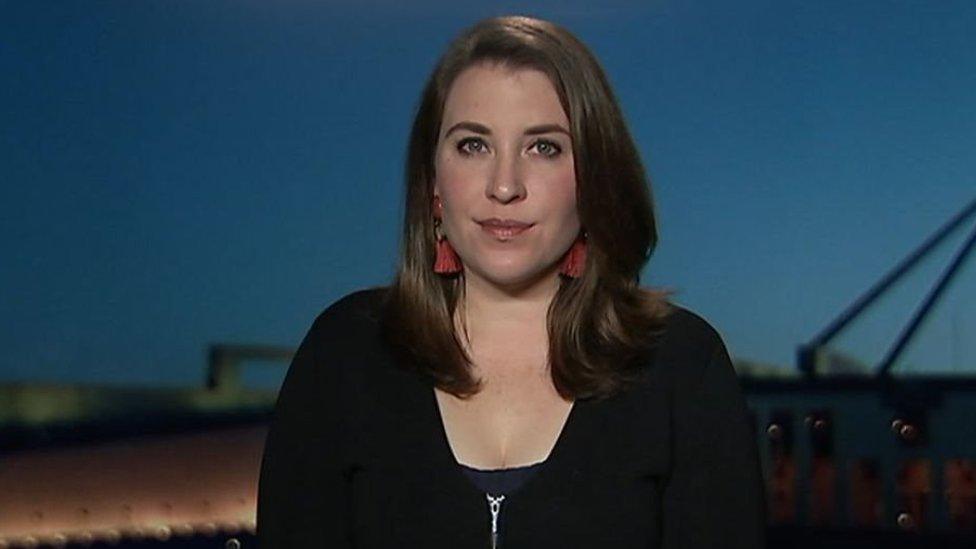
Annika Smethurst reported top secret discussions about new surveillance powers
In a statement on Wednesday, ABC Managing Director David Anderson said the police raid "raises legitimate concerns over freedom of the press".
"The ABC stands by its journalists, will protect its sources and continue to report without fear or favour on national security and intelligence issues when there is a clear public interest."
Were the raids conducted independently?
Both the police and Prime Minister Scott Morrison insist that they were.
Mr Morrison said the police investigation was being pursued "at complete arm's length from the government, not in the knowledge of the government".
Commissioner Gaughan reiterated on Thursday that police had acted independently, under laws granted to them by parliament.
"Not the government nor any minister has directed the actions of these investigations," Mr Gaughan said.
He rejected assertions that police were intimidating journalists or "conduct[ing] a campaign against the media."
Australia introduced new espionage offences last year that human rights advocates say could be used to target journalists and whistleblowers, external.
- Published5 June 2019
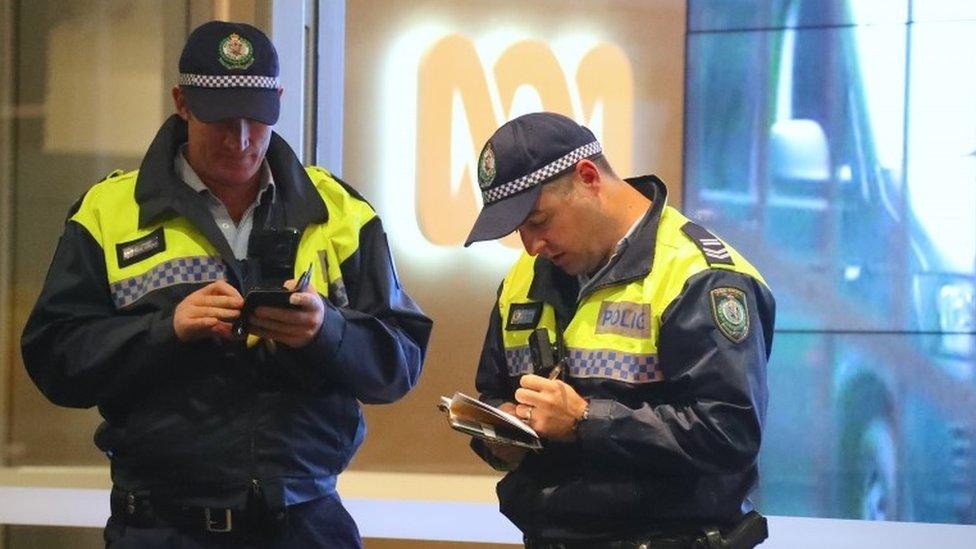
- Published4 June 2019
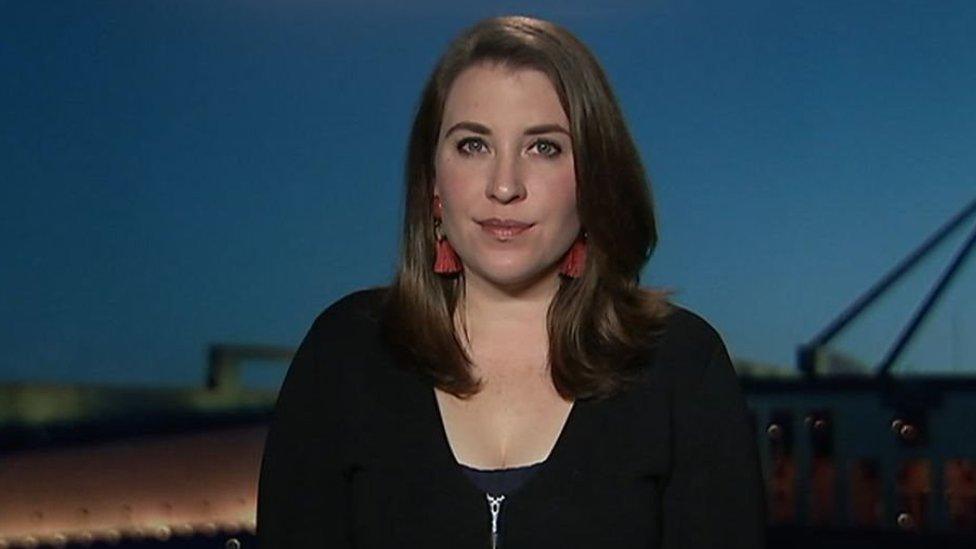
- Published28 June 2018
